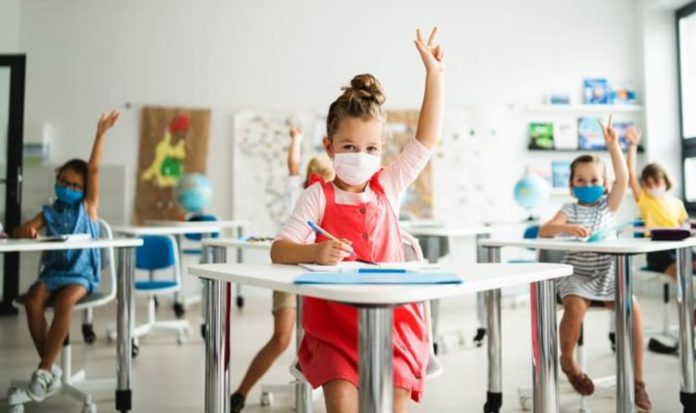Coronavirus: UK heading for ‘population immunity’ says expert
Travel industry leaders expressed relief after the guidance raised hopes of domestic breaks from spring and foreign holidays in the summer. Meanwhile, hospitality bosses said the plan gives them some certainty but warned they will need support in the Budget to help them survive the next few months. And while teaching unions fear the March 8 opening of schools and colleges will cause a “huge logistical challenge” for the testing of pupils, the Education Policy Institute said it was in the children’s best interests.
HOSPITALITY
Pubs and restaurant bosses face a battle for survival after being told they cannot reopen until April 12.
Up to six people from separate households could be able to meet then in beer gardens with no need to order food. Alcohol takeaways will also be available.
But food and drink will not be served indoors until May 17.
Kate Nicholls, chief executive of UK Hospitality, said apart from a couple of weeks in December, the sector will have been closed for nearly 200 days since November.
She said: “This delay in reopening will make the job of survival all the more difficult for businesses only just clinging on to existence.
“The sector is obviously devastated that its reopening will be so far away.
“A major package of financial support is imperative if hospitality is to survive.”
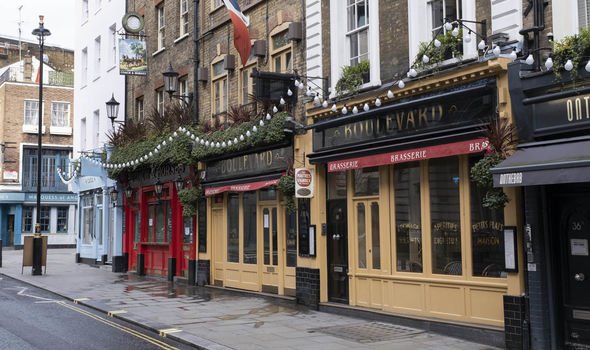
Pub bosses face a battle for survival with weeks to go until they can open (Image: Getty)
Danielle Mason, 36, who owns The Sparrowhawk pub in Upper Norwood, south London, understands the need to go slowly – as no one wants to go back into another lockdown.
She said: “I appreciate it’s a tricky balance but at the same time I think the longer it is until more pubs open, the less that will open.
“We’ve still got rent and standing charges to pay. I wish we could open more fully with safety measures in place. We’ve spent so much on that, everything’s in place, but it is what it is.”
The Shepherd Neame pub group, based in London and the Southeast, said it will be “almost impossible” for the sector to be profitable with outdoor opening in April. But it described the news as “progress”.
SCHOOLS
The reopening of schools on March 8 was widely trailed but teaching unions yesterday still questioned the wisdom of a “Big Bang” for all pupils.
Children across England will be back in the classroom in two weeks’ time.
Breakfast and after-school clubs will also restart and other activities including sport can kick off.
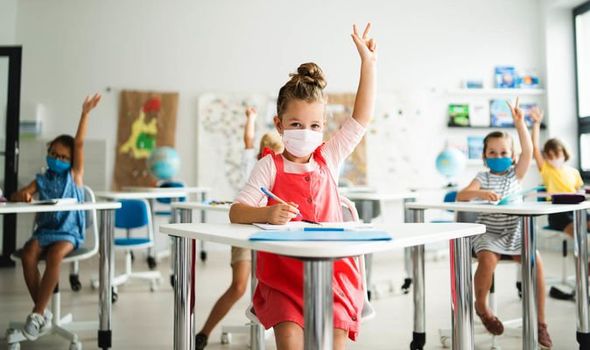
School kids will first return to the classroom (Image: Getty)
Secondary-age pupils face repeated Covid-19 testing and must wear face masks throughout the day.
Geoff Barton, general secretary of the Association of School and College Leaders, said: “We remain concerned about the idea of a ‘Big Bang’ approach of a full return.”
But Russell Viner, professor of adolescent health at University College London, disagreed. He said it was “plausible” schools in England could fully reopen yet infections be reined in.
He added: “Schools should be the first part of society to reopen. The risks of not reopening schools are high.”
Professor Viv Bennett, chief nurse at Public Health England, agreed, saying: “We have always advised schools should be the last to close and first to open.
“It is vital for children’s wellbeing. Staff, parents and pupils can feel reassured by scientific evidence that shows transmission in schools is low and children are not drivers of infection.”
Many of the youngest children in Scotland and Wales returned to the classroom yesterday with older ages rejoining at a later date.
SPORT
Football chiefs were “absolutely delighted” last night as the Prime Minister prepared to unlock the turnstiles for thousands of fans.
The Football Association was first among the ruling bodies to welcome the resumption of elite and grassroots games.

Football fans can have a kick around soon (Image: Getty)
There was jubilation at junior sport restarting from March 8 to May 17, when up to 10,000 fans can watch big sporting events.
These include England’s matches in the European Championships and the Wimbledon tennis tournament, which both start in June.
Outdoor sport will reopen on March 29, including tennis, basketball courts and golf courses.
The Football Association said that it was “absolutely delighted fans will be allowed back soon”.
It added: “The game is simply not the same without them.”
Tim Hollingsworth, Sport England chief executive, said: “We know people are desperate to get back playing the sport they love and doing the activities they have so badly missed – and now it is at last in sight.”
THE ARTS
The curtain will be raised for live theatre and music concerts in the middle of May before full houses are welcomed back in June.
Fiona Allan, president of UK Theatre and artistic director of the Birmingham Hippodrome, said: “It is far better news than we expected.
“Being able to plan anything is not something we have been able to do for the past 12 months so it is very exciting.”
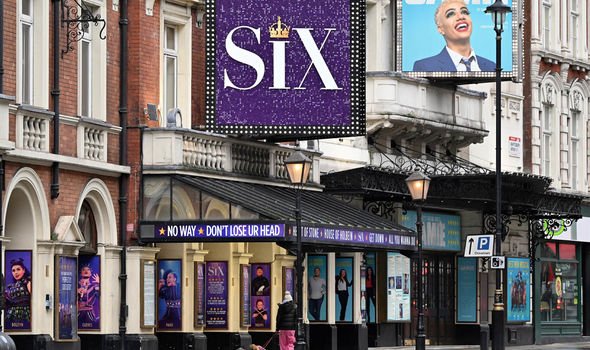
Live theatre and music concerts will return in mid May (Image: Getty)
The roadmap points to indoor events resuming from May 17 in front of either 1,000 people or 50 per cent audience capacity – whichever is lower.
Outdoors, this will be either 4,000 people or 50 per cent capacity. Covid status certificates may also be needed to prove if people have been vaccinated or had a negative lateral flow test and are therefore “safe” to enter a venue. This is something that may be difficult for theatres to manage.
Fiona said: “The proposed June dates will be before the whole population has been vaccinated, so something will clearly have to be done. But it is unclear as to how this would work – or how we would carry this out. This is one area where more information is definitely needed.”
TOURISM/TRAVEL
Trips abroad will resume no earlier than May 17, the Government confirmed yesterday.
Transport Secretary Grant Shapps will launch the Global Travel Taskforce to allow Covid-weary Brits the chance to get away for a break or to see family.
The taskforce will also monitor the threat of mutant variants of the virus.
Domestic holidays will be allowed from April 12 – but hotels and bed and breakfasts will not open until May 17.
Only people from the same household will be able to go on holiday before May 17 and will be restricted to holiday lets and cottages until Stage 3.
The Government’s roadmap revealed: “A second review will consider the resumption of international travel, which is vital for many businesses which have been hardest hit, including retail, hospitality, tourism and aviation.
“A successor to the global travel taskforce will report by April 12 so that people can plan for the summer.”
Paul Charles, chief executive of travel consultancy The PC Agency – who co-founded the Save Our Summer campaign, said the announcement was “the news the travel sector really wanted”. He went on: “I’m sure virtually everyone in the travel sector will be pleased with the greater clarity and a time-frame for enabling those who’ve been vaccinated to travel overseas.
“By then, there will be more than 16 million people eligible to travel abroad in a safe and responsible way.”
RETAIL/BUSINESS
Store chiefs warned of further shop closures yesterday after the plans delayed opening non-essential retail for at least another seven weeks.
They called for further Government grants, postponed debt repayment and business rate relief to offset the £22billion lost by outlets closed in the lockdowns.
Helen Dickinson, chief executive of the British Retail Consortium, welcomed the “additional clarity” given by the April 12 reopening date for all retail.
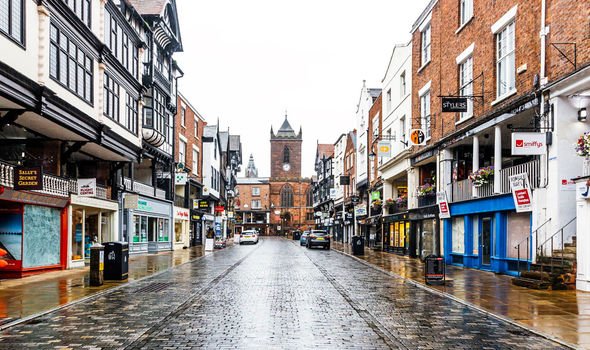
More shops are set to close with the lockdown too tough on business (Image: Getty)
But, she added: “The heavy impact of the pandemic means some may never reopen.”
Andrew Goodacre, chief executive of the British Independent Retailers Association, said storekeepers will miss the Easter sales bonanza.
He added: “We are very disappointed that non-essential shops will miss the Easter period, especially as they also missed out on most of the busy festive period. We therefore want the Chancellor to recognise this in the Budget and make clear statements about the support that will be available for the next 12 months.”
Tony Danker, CBI director-general, said: “The roadmap is a good starting point to the hard yards ahead, and caution is rightly the watchword.’
Mike Cherry, chairman of the Federation of Small Businesses, said the Chancellor was right to “protect against a fourth Covid wave and lockdown.”
Adrian Waddell, CEO of the NE1 business development body for Newcastle upon Tyne, said: “We need there to be no cliff edges in terms of support for business.”
CARE HOMES
Residents are to be allowed to hold hands with a regular indoor visitor from March 8. But the nominated person must take a coronavirus lateral flow test before entry and wear personal protective equipment (PPE).
They will be asked not to hug or kiss their relatives.
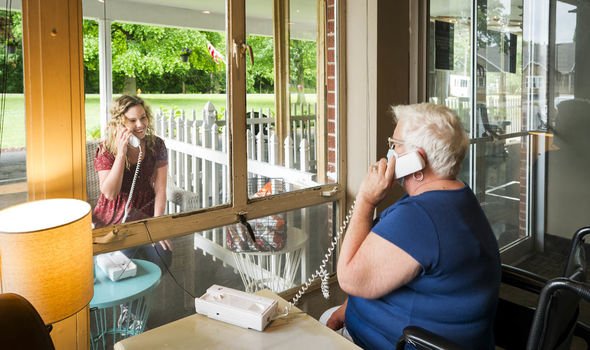
Care home residents will soon be able to hug their loved ones (Image: Getty)
Outdoor visits will also continue, giving residents the chance to see more than just one visitor, the Prime Minister announced yesterday. However, care providers sounded a note of caution.
Mike Padgham, chair of the Independent Care Group, said: “We would have preferred to wait until more residents had their second dose of the vaccine, as data suggests they would be much better protected by that time.
“Covid-19 has not gone away, and we are caring for the most vulnerable and most susceptible to it, as the figures show. Also the Government says holding hands will be allowed but warns against ‘close contact’. How is that going to be possible?”
Caroline Abrahams, charity boss Age UK, said: “Most care home residents don’t have time on their side so the sooner the Government’s announcement about restarting visiting is put into practice, to the benefit of as many older people as possible, the better.”
More guidance is expected to be published in the next fortnight.
STUDENTS
University students have described feeling “stuck in the middle” as some studying practical subjects are allowed to return to campus next month.
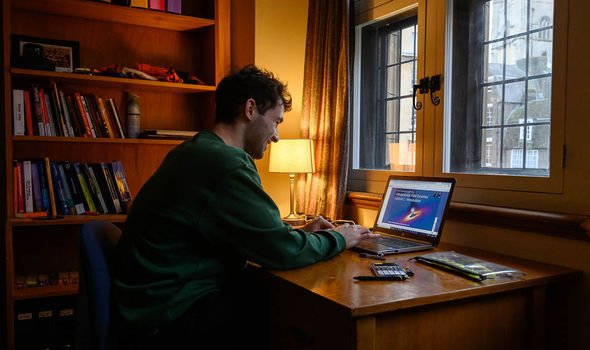
University students have described feeling ‘stuck in the middle’ (Image: Getty)
Boris Johnson said those undertaking practical courses or requiring specialist facilities for their degrees will be able to return from March 8.
Meanwhile, all other students will continue to learn remotely.
Second-year Oxford University student Abigail Howe said: “The lack of definition of what constitutes a ‘practical’ course and the lack of robust support for students means that we’re likely to end up with even more confusion and stress. Does ‘practical’ mean work in labs? Does it mean accessing manuscripts? Theoretically, every course could make an argument that there are practical elements.”
Express is backing the pleas of desperate students through its Fair Deal for Student campaign.
Prof Julia Buckingham, president of Universities UK, said the roadmap would be positive for some and disappointing for others unable to return to campus.
She added: “This is a long-awaited boost for students on practical and practice-based subjects, whose access to specialist facilities – laboratories, studios, workshops and performance spaces – is essential. There will also need to be a further focus on supporting students’ mental health and wellbeing in the weeks ahead.”
Labour MP Paul Blomfield said the “cautious” roadmap neglected to provide the support students need.
—————————————————————————
Wales
On Friday, First Minister Mark Drakeford extended theWelsh lockdown by three weeks to ensure its youngest pupils can return to school.
Those aged three to seven went back yesterday.
Secondary pupils preparing for exams should return by March 15, with other years set for face-to-face teaching after Easter.
Mr Drakeford also announced some “very modest changes” to restrictions, but pubs and restaurants were not mentioned.
Four people from two different households can currently exercise outdoors together.
Self-contained accommodation, including hotels and B&Bs with room service, as well as caravans and lodges, could be allowed to open from April.
Covid rates have fallen by more than 80 per cent since December, said Dr Chris Jones, the Welsh deputy chief medical officer.
There are now around 80 cases per 100,000 people, down from 630 in December.
However, admission to hospital remain high, at 1,800, but have “stabilised and started to fall”.
Scotland
First Minister Nicola Sturgeon said Scotland will return to its regional tiers system of lockdown as restrictions start to ease.
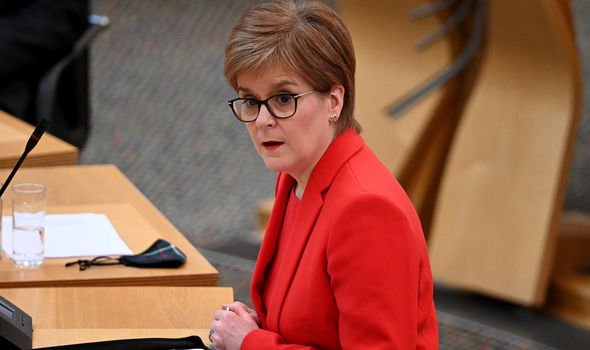
Nicola Sturgeon said Scotland will return to its regional tier system (Image: Getty)
She said its roadmap – due to be announced today – will be broadly similar to England’s.
Key differences include the phased return to school.
Pupils in P1-3 went back yesterday but older children are not expected to return for weeks.
Ms Sturgeon has warned pubs and restaurants will not reopen “imminently” and that her main focus will be on schools and visiting older relatives and family members when restrictions ease.
Northern Ireland lockdown
Restrictions will continue until at least April, the Northern Ireland Executive said last week, with a recovery plan due to be published on March 1.
But First Minister Arlene Foster said Northern Ireland had “begun the journey” out of lockdown.
Pre-school, nursery and primary school pupils in P1-3 will return to full-time face-to-face teaching next month.
And Ms Foster said she wanted other year groups back “as soon as achievable”.
Ministers have also agreed to allow “click and collect” shopping, with payments made via contactless technology, from some outlets previously categorised as non-essential retailers.
Outdoor groups of up to 10 people from two households are allowed from March 8.
